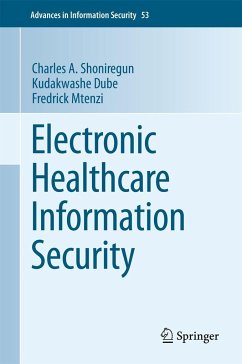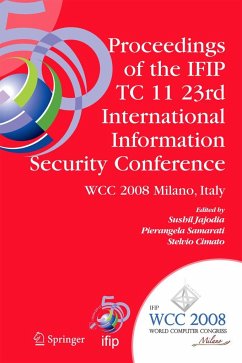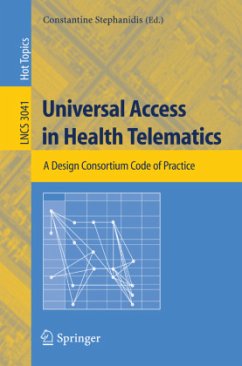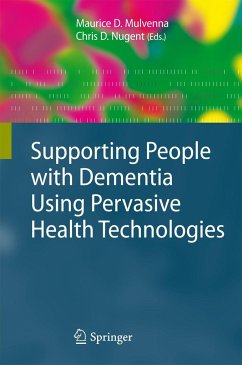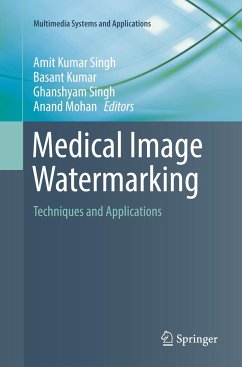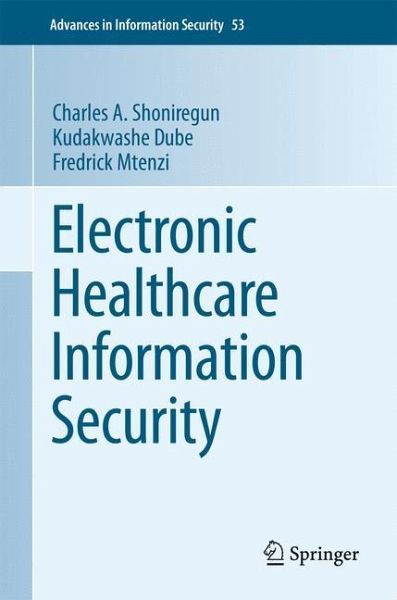
Electronic Healthcare Information Security
Versandkostenfrei!
Versandfertig in 6-10 Tagen
93,99 €
inkl. MwSt.
Weitere Ausgaben:

PAYBACK Punkte
47 °P sammeln!
The ever-increasing healthcare expenditure and pressing demand for improved quality and efficiency of patient care services are driving innovation in healthcare information management. The domain of healthcare has become a challenging testing ground for information security due to the complex nature of healthcare information and individual privacy.
Electronic Healthcare Information Security explores the challenges of e-healthcare information and security policy technologies. It evaluates the effectiveness of security and privacy implementation systems for anonymization methods and techniques. The first comprehensive book dedicated to electronic healthcare information security also introduces new standards.
Designed for practitioners and researchers in the healthcare sectors, this book is also suitable for advanced-level students in computer science and medicine, as a secondary textbook or reference.
Electronic Healthcare Information Security explores the challenges of e-healthcare information and security policy technologies. It evaluates the effectiveness of security and privacy implementation systems for anonymization methods and techniques. The first comprehensive book dedicated to electronic healthcare information security also introduces new standards.
Designed for practitioners and researchers in the healthcare sectors, this book is also suitable for advanced-level students in computer science and medicine, as a secondary textbook or reference.
The adoption of Information and Communication Technologies (ICT) in healthcare is driven by the need to contain costs while maximizing quality and efficiency. However, ICT adoption for healthcare information management has brought far-reaching effects and implications on the spirit of the Hippocratic Oath, patient privacy and confidentiality. A wave of security breaches have led to pressing calls for opt-in and opt-out provisions where patients are free to choose to or not have their healthcare information collected and recorded within healthcare information systems. Such provisions have negative impact on cost, efficiency and quality of patient care. Thus determined efforts to gain patient trust is increasingly under consideration for enforcement through legislation, standards, national policy frameworks and implementation systems geared towards closing gaps in ICT security frameworks. The ever-increasing healthcare expenditure and pressing demand for improved quality and efficiency in patient care services are driving innovation in healthcare information management. Key among the main innovations is the introduction of new healthcare practice concepts such as shared care, evidence-based medicine, clinical practice guidelines and protocols, the cradle-to-grave health record and clinical workflow or careflow. Central to these organizational re-engineering innovations is the widespread adoption of Information and Communication Technologies (ICT) at national and regional levels, which has ushered in computer-based healthcare information management that is centred on the electronic healthcare record (EHR).




